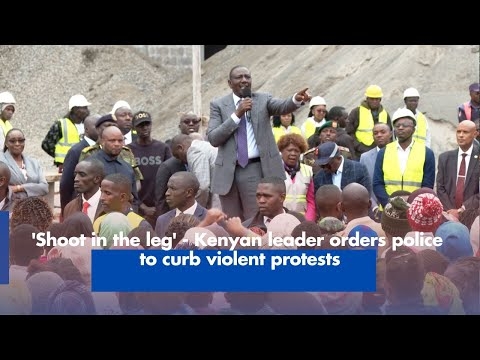Kenya on Tuesday led other African countries in seeking the World Bank's debt extension by another year to July 2022.
This, they said will yield additional external resources, address debt vulnerabilities and providing liquidity.
Speaking at the meeting between African finance ministers and chairpersons of IMF and World Bank Development Committees, Kenya's National Treasury chief Ukur Yatani said most countries ability to carry additional debt has declined with a weaker outlook on economic growth, hence the need for suspension extension.
''Furthermore, with contraction in exports and increased exchange rate volatility, debt servicing costs are slowly reaching unsustainable levels,'' Yatani said.
Regional exchequer heads told the two international lenders that African countries require external assistance to enable sustained fiscal consolidation and economic growth.
Last year, World Bank announced a debt suspension for 73 poor countries to help them concentrate resources on fighting the pandemic and safeguarding the lives and livelihoods of millions of the most vulnerable people.
Since it took effect on May 1, 2020, the initiative has delivered about $5 billion in relief to more than 40 eligible countries.
The suspension period, originally set to end on December 31, 2020, has been extended to June 2021.
Kenya is among the beneficiaries from the initiative that saw it hold $600 million ( above Sh66 billion) of due debt.
The country is now racing against time to mobilise resources to clear debt once the extension lapses at the end of the current financial year.
To clear this year's debt obligation, Kenya is considering floating a fourth Eurobond in less than seven years to help pay a Sh925 billion debt in the next three months.
In addition to measures pronounced by the G20 under the Debt Service Suspension Initiative (DSSI) and support from the International Monetary Fund that catalysed further support from the international community, they spelled out six pleas to Breton woods institutions.
They for instance requested equitable and affordable access to Covid-19 vaccines, saying critical help from the international community is urgently required in the continent.
They called for the enhancement of the limits of access to IMF facilities through reallocation of existing SDRs and allocating new SDRs including strengthening the quick disbursement of the IMF through Rapid Credit Facility (RCF) and (Rapid Financing Instrument (RFI) and short-Term liquidity lines.
They are also urging the World Bank and the IMF should consider innovative solutions to re-profile existing debts owed by poor and lower-middle income countries, on a case-by-case basis to avoid the emergence of a humanitarian crisis in the region.
They further asked the lenders to support regional states to invest in building an adaptive climate-resilient economy and boosting investment in digital technologies.
''This will help provide employment opportunities, close the digital divide, enable social safety nets to better reach the most vulnerable, and address the climate challenges buffeting the region,'' a joint statement read by Yatani reads in part.
Lastly, they underscored the need to fast-track the implementation of regional integration as part of the economic recovery of the region.








![[PHOTOS] Ruto hosts UDM leaders at State House](/_next/image?url=https%3A%2F%2Fcdn.radioafrica.digital%2Fimage%2F2025%2F07%2Fc69cdbaf-1cbd-4be3-a7e5-a42efcac7189.jpeg&w=3840&q=100)


